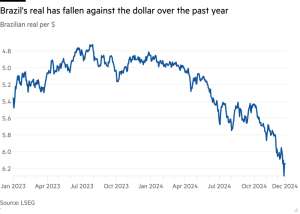A big, broad view of British tax

Stay informed with free updates
Simply sign up to the UK tax myFT Digest — delivered directly to your inbox.
Taxes in the UK are historically high. In fact, according to the OBR, they’ve never been higher. But progressively higher tax rates have not been enough to close the budget deficit, so His Majesty’s Government still has to borrow money every year.
HMRC reckon they’ll administer c£830bn of tax receipts this year. Here’s a breakdown of their estimate as to what they’ll receive for 2023-24:
We know what you’re thinking. Something’s missing. While taxes attract all the headlines, what about the tax reliefs? Specifically, non-structural tax reliefs.
Non-structural tax reliefs are of course reliefs that are, in HMG’s words:
…actively designed to help or encourage particular types of individuals, activities or products in order to achieve economic or social objectives.
Good news! Earlier this month HMRC published its latest non-structural cost estimates for tax reliefs.
The Treasury select committee reckons there are over 1,180 tax reliefs in total. Some 344 of these are non-structural reliefs, half of which have an annual cost of less than £10mn. The 107 non-structural tax reliefs for which HMRC has published cost estimates in the latest tax year carried a cumulative cost of £207bn. Two-thirds of these are accounted for by the largest five reliefs (Pensions Income Tax and NICS relief at £52bn; primary residence capital gains tax relief at £31bn; VAT-relief on food at £25bn; VAT-relief on new homes at £16bn; VAT-relief on domestic fuel and power at £8bn).
And here’s how they break down in a clickable tree map of their very own:
All these reliefs, big and small, will have their staunch defenders. Some of them, like the £300mn Video Games Tax Relief for Corporation Tax, look like British Industrial Policy: a bung to hothouse a sector. Others, like the £4.8bn Inheritance Tax Relief given to transfers between spouses and civil partners, look like the state trying to avoid turfing widow/er(s) out of their homes upon the death of their partners.
Almost everyone seems to agree that the tax system is too complex and that there are too many reliefs. But scrapping individual reliefs is politically tricky. We’re not going to weigh in on their various merits right now, though feel free to pontificate with your own thoughts in the comments below.
Instead, we’re going to do something much more exciting! Since we’ve got the data for both taxes and reliefs we can — drum roll — put them on the same clickable treemap:
Advocates of a simpler tax system will point out that eliminating reliefs, and using the proceeds to lower tax rates, would not only cut bureaucracy, but could also yield more revenue — perhaps enough to eradicate the budget deficit. This may be true, but would also mean fewer government nudges to do the ‘right thing’ like build houses, eat (some) food, or inherit money.
More importantly, sweeping away reliefs would mean far fewer FTAV posts describing the latest travails in the courts between highly paid barristers arguing whether collagen is a drink, when a flapjack is really a flapjack, the crisp-likeliness of Walkers Sensation Poppadoms, and the fraught legal status of Pringles. So probably a bad thing.
#big #broad #view #British #tax









